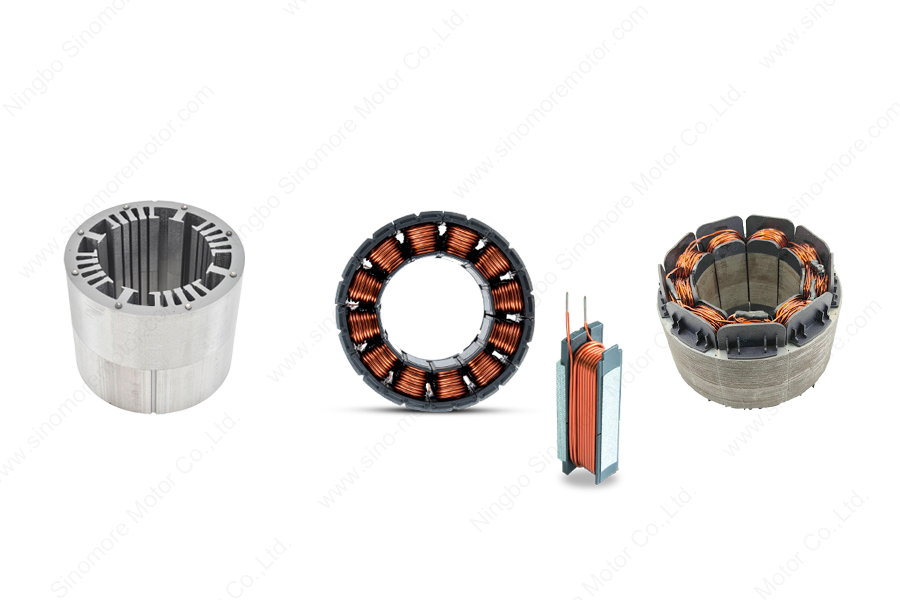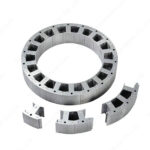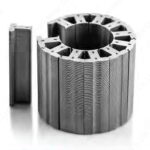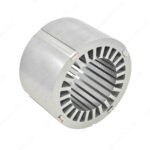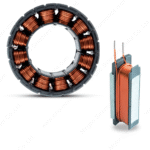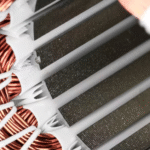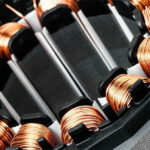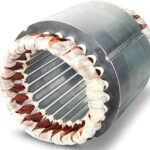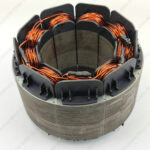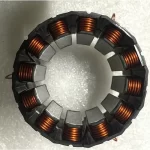In the sophisticated structure of electric equipment, the stator, as a silent yet critical core component, serves as the hub for converting electrical energy into mechanical energy. Derived from the combination of Stationary and Rotor, this term not only defines its physical property but also reveals its irreplaceable functional role in motor systems. From industrial heavy machinery to household intelligent devices, the stator, with its stable static structure, has become the invisible force driving the operation of the modern electrified society.
The stator is a key stationary component in motors, whose core mission is to generate a magnetic field through current excitation, providing driving force for rotor rotation. When three-phase current flows through the stator windings, a rotating magnetic field is formed in space. The interaction between this magnetic field and the rotor produces torque, achieving the conversion of electrical energy into mechanical energy. Figuratively speaking, the stator is like the creator of the magnetic field, providing a stable magnetic environment for motor operation by precisely controlling the electromagnetic induction process.
In terms of structural composition, the stator mainly consists of three core parts:
–Stator Core: Formed by laminating silicon steel sheets with a thickness of 0.1-1.0mm, this design not only enables efficient magnetic conduction but also reduces eddy current loss through insulating coatings. The silicon element in the silicon steel sheets further optimizes magnetic permeability and reduces hysteresis loss, making it an ideal magnetic conductive material.
– Stator Windings: Wound with insulated copper wires and embedded in the slots of the core. When current passes through the windings, an alternating magnetic field is generated, serving as the energy source driving the motor.
– Housing Structure: It not only provides support and protection but also ensures the stator maintains a reasonable temperature during high-frequency operation through heat dissipation design, guaranteeing system stability.
Depending on the type of motor, the stator’s structural design exhibits diverse characteristics to adapt to energy conversion requirements in different scenarios:
The design and manufacturing quality of the stator directly affect several key performance indicators of the motor:
– Energy Efficiency: High-quality stators can increase motor efficiency by 10%-15% through optimized magnetic field distribution and reduced losses, lowering long-term operation costs.
– Service Life: Reasonable material selection (such as high-permeability silicon steel and heat-resistant insulating paint) and structural design (such as heat dissipation rib layout) can extend the stator’s service life by more than 20%.
– Operational Stability: The uniformity of the stator’s magnetic field determines the smooth operation of the motor, reducing vibration and noise and enhancing equipment reliability.
– Environmental Adaptability: Special coatings and sealing designs enable the stator to work stably in harsh environments such as humidity and dust, expanding application scenarios.
In the surging wave of global electrification, Sinomore, with years of technical accumulation in deepening motor core components, has brought a series of high-reliability and high-performance customized stator and rotor products to the market. We have established a full-chain service system from material processing, component manufacturing to performance testing. Each set of products undergoes multiple precision inspections, covering stator core permeability testing, winding withstand voltage testing, rotor dynamic balance detection, etc., to ensure that the delivered motor core components reach industry-leading levels in energy efficiency, reliability, and environmental adaptability.
Whether it is a green energy project pursuing ultimate energy efficiency or high-end manufacturing equipment with strict precision requirements, we can provide one-stop services from scheme design to production delivery according to your needs. We look forward to cooperating with you, leveraging excellent technology and services to jointly explore the infinite possibilities of motor applications and inject new vitality into industry development!

